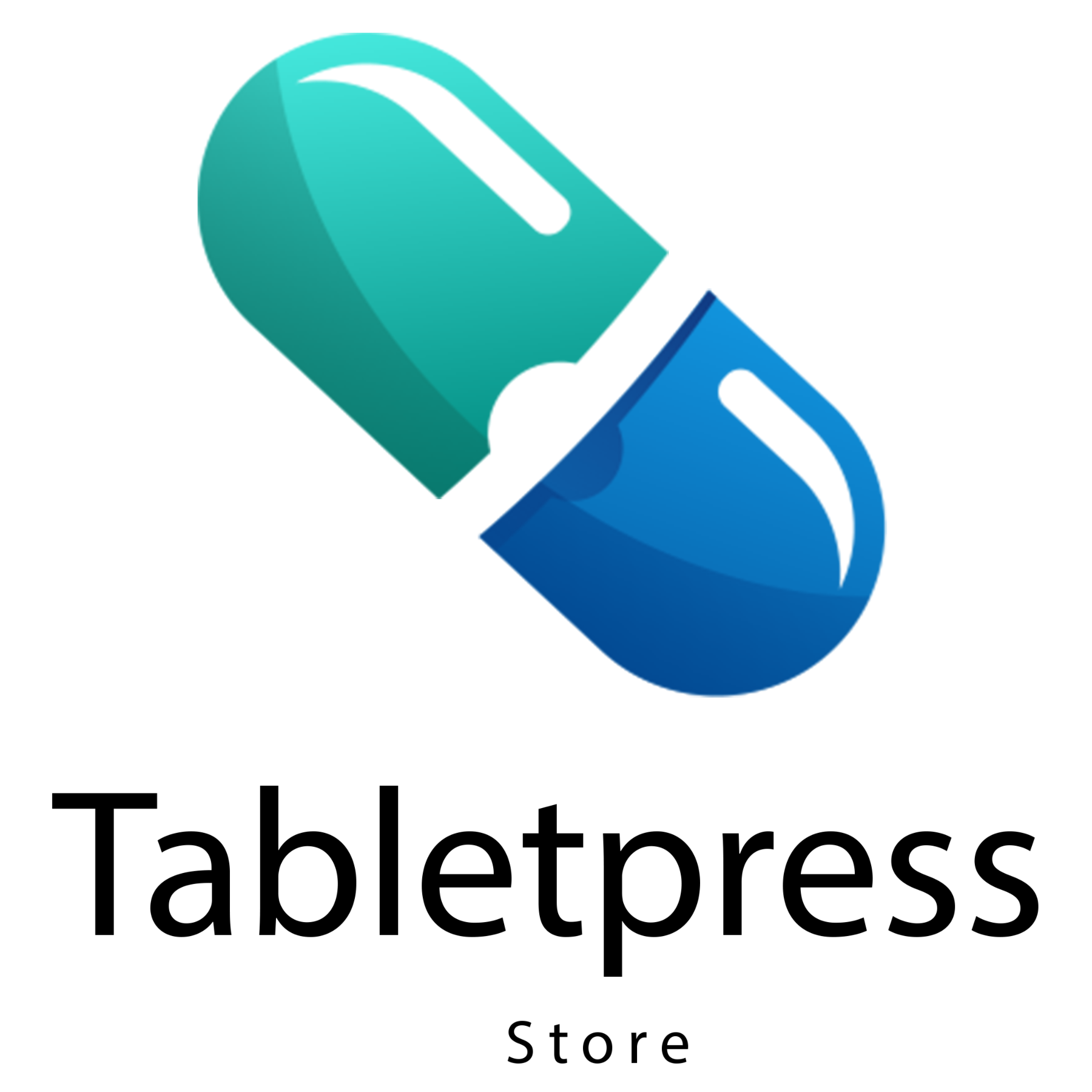Comparison between eccentric and rotary presses: The right choice for tablet production
Die Herstellung von Tabletten ist ein komplexer Prozess, bei dem die Wahl der richtigen Pressmaschine entscheidend ist. Ob in industriellen...
WORLDWIDE SHIPPING - Order now

Tablet presses, also known as tablet compression machines, are essential in the pharmaceutical, nutritional supplement and chemical industries. They transform powder into tablets of uniform size and weight and offer numerous benefits. While some benefits are widely known, there are others that are less obvious but equally impactful. Here are ten benefits of tablet presses that you may not know about:
1. Precision and consistency
Tablet presses provide precision in the size, weight and density of tablets. This consistency is critical to maintaining dosage integrity in pharmaceutical production. The ability to produce uniform tablets with minimal deviations increases product reliability and consumer confidence.
2. High production efficiency
Modern tablet presses can produce thousands of tablets per hour, making them indispensable for mass production. Their ability to process large quantities without loss of quality significantly reduces production time and costs.
3. Versatility in tablet design
Many tablet presses offer customizable tooling that allows manufacturers to create tablets in a variety of shapes, sizes and designs. From round and oval to more complex shapes with embossing, the versatility supports both branding and functionality.

4. Improved powder handling
Tablet presses are equipped with advanced powder management systems. Features such as forced feeders ensure even distribution of powder into the dies, reducing waste and improving efficiency. This capability is particularly useful when working with expensive or sensitive ingredients.
5. Cost efficiency
Despite the initial investment, tablet presses are cost-effective in the long term. They minimize material waste, reduce labor and enable faster production, resulting in significant savings over time.
6. Automation and Integration
Modern tablet presses are equipped with automated controls and monitoring systems. Features such as touchscreen control panels, real-time data collection and error detection ensure smooth operations. Many machines can also be integrated with other production equipment, enabling a seamless manufacturing process.
7. Compact and space-saving design
Despite their high performance, many tablet presses are designed to take up minimal space. This compact design is ideal for operations where space is limited and allows for efficient layout planning.
8. Flexibility in wording
Tablet presses can handle a wide variety of formulations, from simple blends to complex compositions containing active ingredients, binders and fillers. This flexibility is critical for pharmaceutical companies that manufacture a wide range of products.

9. Improved security features
Safety is a top priority in modern tablet presses. Features such as enclosed compression areas, dust extraction systems and automatic shutdowns in the event of anomalies protect operators and ensure a safe working environment.
10. Environmentally friendly operation
By minimizing material waste and optimizing energy consumption, tablet presses contribute to environmentally friendly manufacturing practices. In addition, features such as dust collection systems reduce airborne particles and ensure cleaner operations.
In summary, Tablet Press numerous benefits that go beyond the obvious advantages of high-speed production and consistent tablet quality. From increased safety and environmental compatibility to design diversity and cost efficiency, these machines play a central role in modern manufacturing processes. Their continuous development ensures that they remain indispensable in industries that demand precision, reliability and scalability.
1. Was ist eine Tablettenpresse und wofür wird sie verwendet?
Eine Tablettenpresse ist ein Gerät, das Pulver oder Granulate zu festen Tabletten verdichtet. Sie wird in Pharmazie, Nahrungsergänzungsmitteln und für Heimproduktionen eingesetzt.
2. Kann ich eine Tablettenpresse für Zuhause nutzen?
Ja, es gibt kompakte Tablettenpressen für den Heimgebrauch, die einfache Tabletten sicher und schnell herstellen.
3. Welche Arten von Tablettenpressen gibt es?
Man unterscheidet zwischen manuellen, halbautomatischen und vollautomatischen Tablettenpressmaschinen für unterschiedliche Produktionsmengen.
4. Wie wähle ich die richtige Tablettenpresse?
Die Wahl hängt von der Tablettengröße, Produktionsmenge und Materialart ab. Für kleine Mengen eignen sich Tisch- oder Heimgeräte, für industrielle Produktionen größere Maschinen.
5. Welche Vorteile bietet das Pressen von Tabletten selbst?
Selbst hergestellte Tabletten ermöglichen präzise Dosierung, Zeitersparnis, individuelle Rezepturen und eine saubere, hygienische Produktion.
6. Wo kann man eine Tablettenpresse kaufen?
Tablettenpressen können online oder bei Fachhändlern für pharmazeutische Geräte erworben werden, z. B. unter den Begriffen Tablettenpressmaschine, Tablettenpresse kaufen oder Pillen drukmachine kopen.
Die Herstellung von Tabletten ist ein komplexer Prozess, bei dem die Wahl der richtigen Pressmaschine entscheidend ist. Ob in industriellen...
Der Kauf einer Tablettenpresse ist eine strategische Entscheidung für Unternehmen aus der Pharma-, Chemie-, Lebensmittel- oder Nahrungsergänzungsmittelindustrie. Die richtige Maschine...
Der Einsatz einer Tablettenpresse erfordert nicht nur technisches Verständnis, sondern auch sorgfältige Vorbereitung und Aufmerksamkeit. Obwohl diese Maschinen für die...
Die Herstellung von Tabletten ist ein komplexer Prozess, bei dem jede Komponente des Tablettenpressens entscheidend für die Qualität des Endprodukts...
